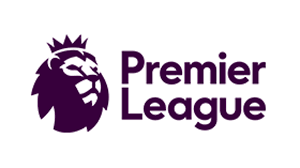New changes that may become the features of the EPL for a very long time to come
Michael Akintunde
The 2019/20 Premier League season will resume on June the 17th, but not without changes as the world battles to adjust to the realities of COVID-19.
There has been no action in the English top-flight since early March, with all sports put on hold due to the coronavirus pandemic.
But the Premier League is now gearing up to return, with all 20 clubs welcoming their squads back to full contact training and setting a date for its resumption.
The last Premier League match before the shutdown was Leicester vs Aston Villa on March 9.
Manchester City vs Arsenal was the first Premier League fixture to be postponed on Wednesday, March the 11th after Mikel Arteta tested positive for coronavirus.
The following weekend’s top-flight matches were subsequently called off and there has been no action since then.
EFL matches, the FA Cup quarter-finals, Champions League and Europa League games and international fixtures have also been pushed back.
Euro 2020 has been rescheduled for next summer to give domestic leagues the chance to get their seasons finished.
Fans of the Premier League will certainly be in for a treat when it finally returns with a bumper television schedule. Viewers are set for four back-to-back matches on Saturdays and then again on Sundays, with games also scheduled for Friday and Monday nights as well as in midweek slots.
But for the first time in years, fans will not be able to cheer on their teams as matches hold in empty stadia.
Players like Harry Kane, Kieran Gibs, and Marcos Rashford have expressed their reservations about this development, arguing that it would be boring without the fans.
However, some pundits contend that half-bread is better than none and that anything at all would make up for several weekends of no football.
Apart from the empty stadia, Premier League lovers will also be treated to a change in the substitution rule which will now allow five substitutes in a game. This is not unconnected to the fact that some of these players may have be out of touch and could need time to get their mojo back.
No doubt, the empty stadia will have a serious impact on marketing and revenue had hitherto suffered due to the pandemic.
The twice-a-week COVID-19 test to be carried out on players and staff will also cost clubs more. Anyone who tests positive will be forced to self-isolate for seven days.
Earlier this week, the Premier League said it had carried out tests on over 3,000 players and staff, reporting that four were positive across three different clubs in its first 2 weeks of testing since it began on May 17.
Also, for the first time since the 1980s, the British Broadcasting Corporation, BBC,will be airing four premier league matches weekly.
The restart of the league will sure revive hope, not just in UK, but in Africa where major English clubs have millions of fans.
Manchester City and Arsenal will be the first to battle one another on June 17th as the battle against COVID-19 rages. Hopefully, this would serve as a source of joy to many in these days of too many bad news
Once more, football fans will have weekends to look forward to, but they just have to accept the new changes occasioned by COVID-19 as the new features of their darling sports for a very long time to come if the statement by the World Health Organisation (WHO) that the coronavirus may never go away is anything to go by.

